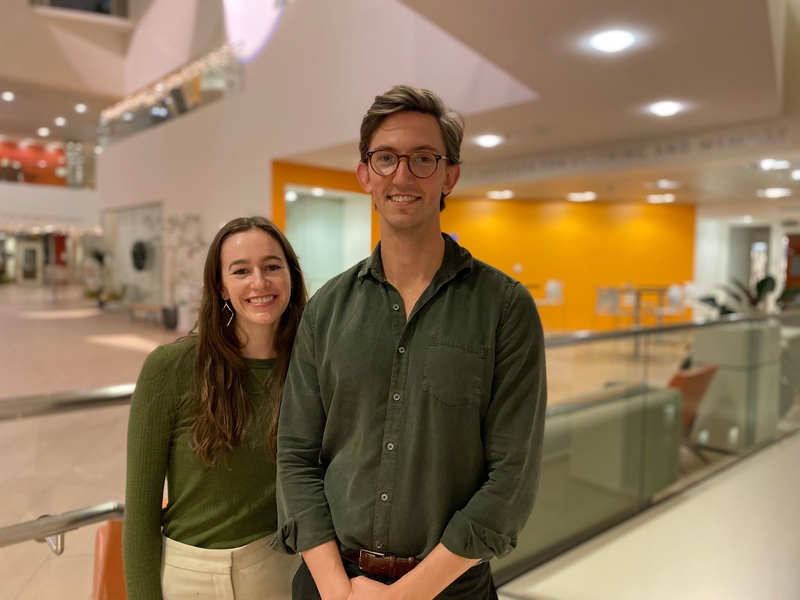Brave Behind Bars, co-founded by PKG Fellow Marisa Gaetz, in MIT News!
Marisa Gaetz (G), former PKG Fellow, IDEAS Finalist, and recipient of the 2021 Priscilla King Gray Award for Public Service, co-founded Brave Behind Bars with fellow graduate student, Martin Nisser (G).

A programming language textbook might not be the first thing you’d expect to see when walking into a correctional facility.
The creators of the Brave Behind Bars program are hoping to change that.
Founded in 2020, Brave Behind Bars is a pandemic-born introductory computer science and career-readiness program for incarcerated women, based out of The Educational Justice Institute at MIT (TEJI). It’s taught both online and in-person, and the pilot program brought together 30 women from four correctional facilities across New England to study web design.
One of the co-founders, Martin Nisser, a PhD student from MIT’s Computer Science and Artificial Intelligence Laboratory (CSAIL), explains the digital literacy and self-efficacy focused objectives: “Some of the women haven’t had the opportunity to work with a computer for 25 years, and aren’t yet accustomed to using the internet. We’re working with them to build their capabilities with these modern tools in order to prepare them for life outside,” says Nisser. Even for the students who became incarcerated more recently, it can be difficult to keep up with the fast pace of technological advances, since technical programs in correctional facilities are few and far-between.
This scarcity of preparatory programs undoubtedly contributes to high and rising recidivism rates: More often than not, those who are released from prison eventually return.
While working at TEJI, Nisser had a fortuitous meeting with his two co-founders, Marisa Gaetz (a PhD student from MIT’s Department of Mathematics) and Emily Harburg (co-founder of Brave Initiatives, a nonprofit that develops coding bootcamps for young women). This meeting led to the birth of the program, and they were later joined by eight MIT affiliates who instruct and coach students.
Educational programs are one of the few tools to help recidivism — they’ve been shown to reduce recidivism by 43 percent — and the nascent curriculum the team deployed emphasizes practical skills that can be readily utilized in the workplace. It was explicitly built around three foundational teaching modules that supported Nisser, Gaetz, and Harburg’s hope of situating a traditional web design course in a digital literacy program that would foster success in a modern workplace after a completed sentence. The main parts are core technical skills, career-readiness skills, and a capstone project. Through this, the students learn the fundamentals of web programming and the building blocks of digital literacy.
Click here to continue reading the full story on MIT News!
Marisa Gaetz began her work with Brave Behind Bars as an undergraduate at MIT and has continued it throughout her graduate studies. In 2021, she was honored with the Priscilla King Gray Graduate Student Award for Public Service for her commitment to this project. To learn more about Marisa Gaetz’ work with Brave Behind Bars, read our interview with her here.
Tags: PKG Award, PKG Award 2021, PKG Fellowships, Tech for Good
